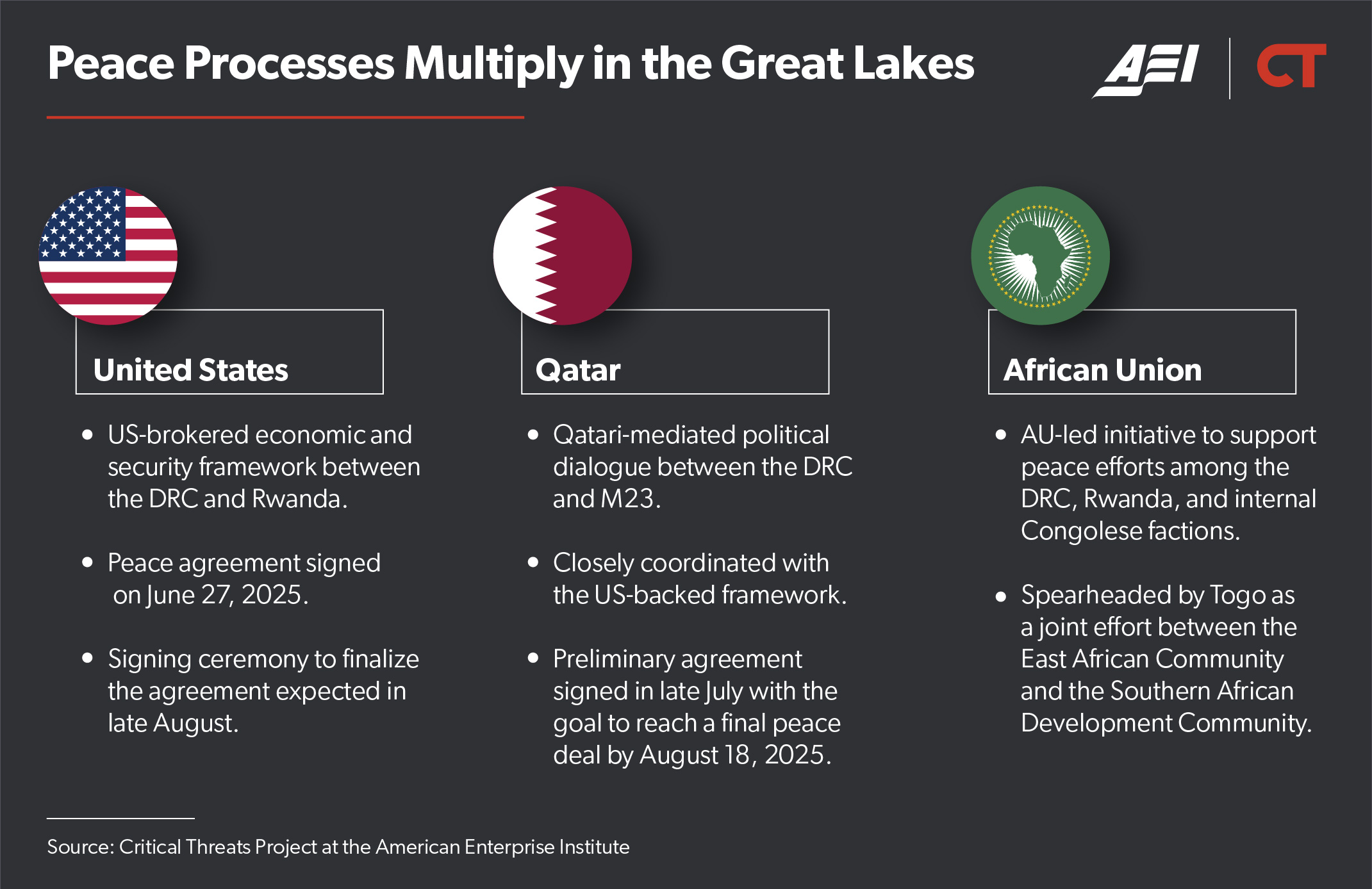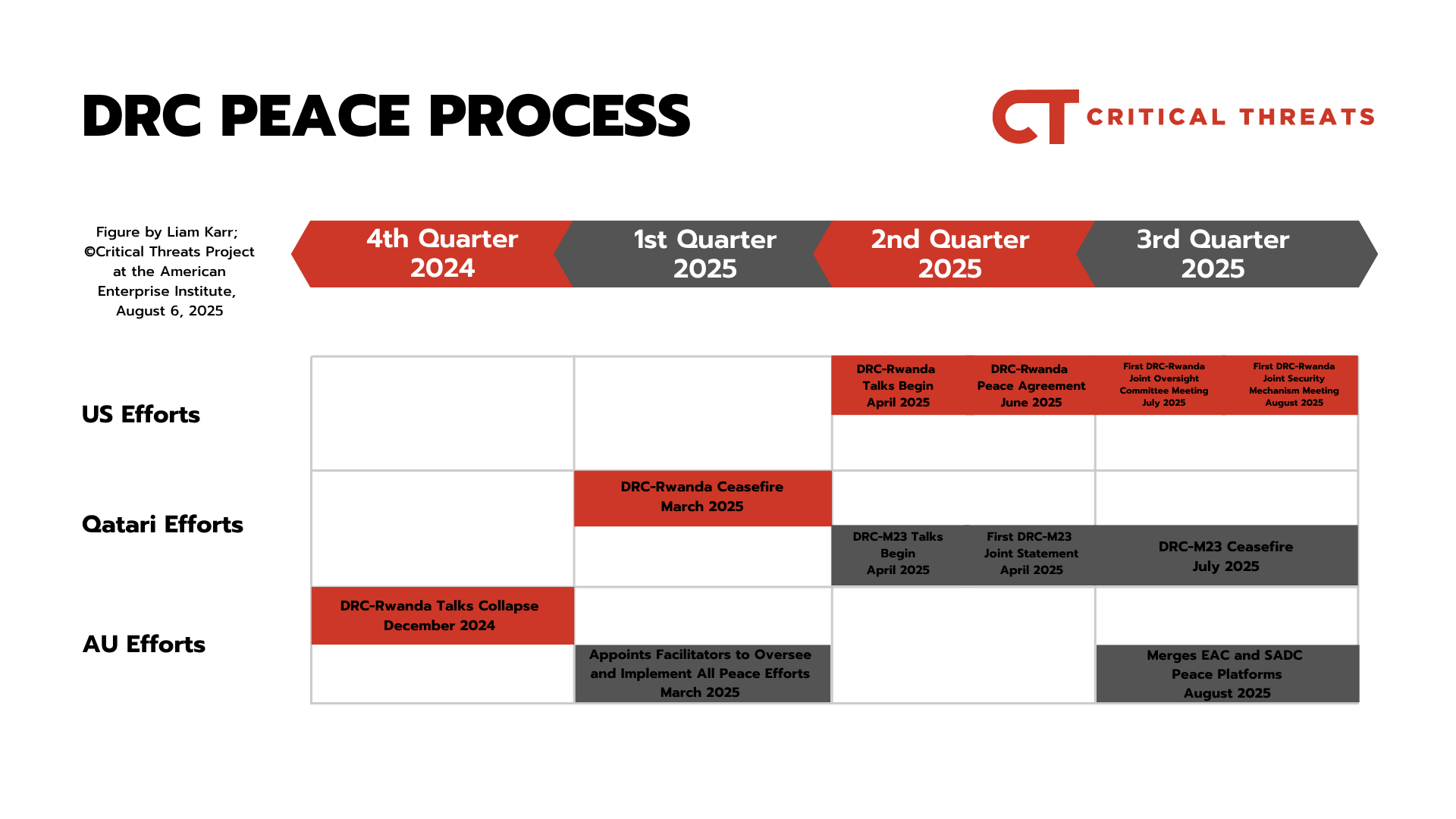Challenges to Sustainable DRC-M23 Peace
See the PDF of this report here.
Read the full update with graphics here. Shapefiles are available by request via email to [email protected].
To receive the weekly Africa File and the triweekly Congo War Security Review via email, please subscribe here. Follow CTP on X, LinkedIn, and BlueSky.
Key Takeaway
The Democratic Republic of the Congo (DRC), M23, and Rwanda will likely remain involved with Qatari-brokered negotiations and the broader US-backed regional peace framework without quickly reaching a deal to avoid making concessions while reaping the rewards of US engagement. Both sides have been unwilling to concede their maximalist positions on M23’s territorial control, which will likely prolong talks and make a sustainable and lasting agreement unlikely.
Peace Platforms


Actors’ Incentives to Engage in Peace Talks
- DRC Government: The US-backed peace framework would bring significant US investment in the government-controlled mining sector, strengthen the Congolese army, and possibly help isolate opposition political factions.
- Rwanda: The US-backed peace framework will bring significant US investment and help legitimize Rwanda’s stake in the mineral trade in the eastern DRC.
- M23: Peace talks give M23 time to consolidate its de facto control over occupied areas and strengthen its military.
Obstacles to a Sustainable Agreement
- M23 Territorial Control: Both sides have stuck to their maximalist demands on M23’s territorial control. M23—with Rwandan support—is pushing for autonomy, while the DRC demands M23’s unconditional withdrawal.
- Dispute Resolution Mechanisms: The DRC rejected M23’s proposed demilitarized zone, and the two sides have not established a joint ceasefire monitoring mechanism.
Implications and Outlook
- Sustainable Agreement Unlikely: The lack of clarity and willingness to negotiate on M23 control and the return of government authority will likely be a major obstacle in the upcoming round of talks.
- External Pressure Needed: US and Qatari pressure could lead both sides to make and follow through on concessions to retain the advantages of the US-backed peace framework.
- Military Escalation Possible: M23 may already have the requisite strength to relaunch its military campaign and could conduct southward or westward offensives to gain leverage if talks stall or collapse.
- Other Spoilers: Other local and regional actors excluded from ongoing talks, such as pro-Congolese government militias, Burundi, or Uganda, could undermine the sustainability of the broader peace framework.
